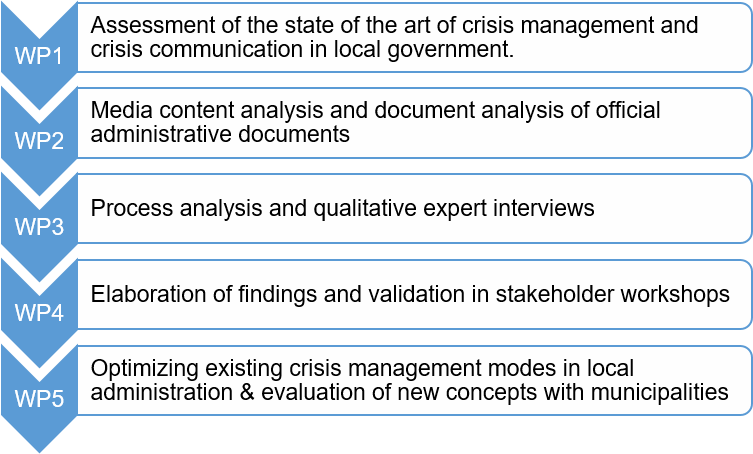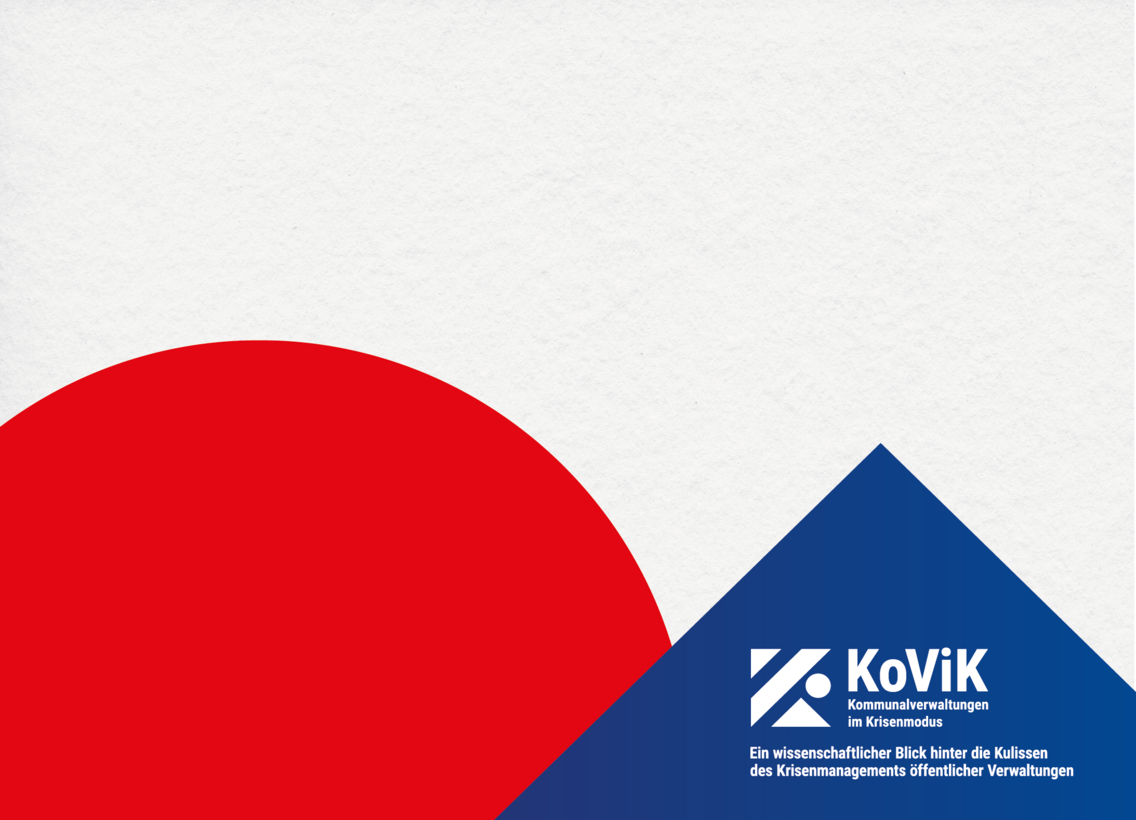PROJECT FRAMEWORK AND MOTIVATION
Due to COVID-19, public administrations of municipalities in Germany are in crisis mode since many months. Crisis mode means here: They meet the pandemic situation by adopting special organizational structures and processes that are designed for crisis management. However, media repeatedly points to inconsistent administrative approaches across different municipalities. This becomes apparent in the diversity of official rules, regulations, and statements in communication with the public. A popular request is a uniform approach on the federal level. Crisis management and crisis communication by municipal administrations is an under-explored topic – compared to classic organizations of crisis management (e.g., police, emergency medical services, fire brigade, etc.). KoViK answers the multifaceted aspects of municipal crisis management with a promising interdisciplinary approach combining social science and safety engineering.
PROJECT GOALS AND METHODOLOGICAL APPROACH
The overall objective of the research project is to use the example of the COVID-19 situation to gain insights into approaches of crisis management and crisis communication practiced by local administrations. These insights will be reflected with regard to established forms of crisis management (e.g. e.g. "typical" emergency organizations) and consequences of pluralistic approaches to action for the population and other actors will be determined. The manifold challenges of municipal crisis management will be analyzed with an interdisciplinary approach from social sciences and safety engineering.
The realization of these goals will be implemented in five work packages (WP). First, a comparative analysis of the state of art in crisis management will be conducted (WP1), followed by a media content analysis and a document analysis of official (municipal) administrative documents (WP2). This is followed by semi-structured interviews with administrative staff (WP3). The collected findings are processed and checked for validity in stakeholder workshops (WP4). The collected findings will be processed and evaluated together with the municipalities. Both existing crisis management modes and new concepts of municipal crisis management will be evaluated (WP5).
Procedure in the WP



